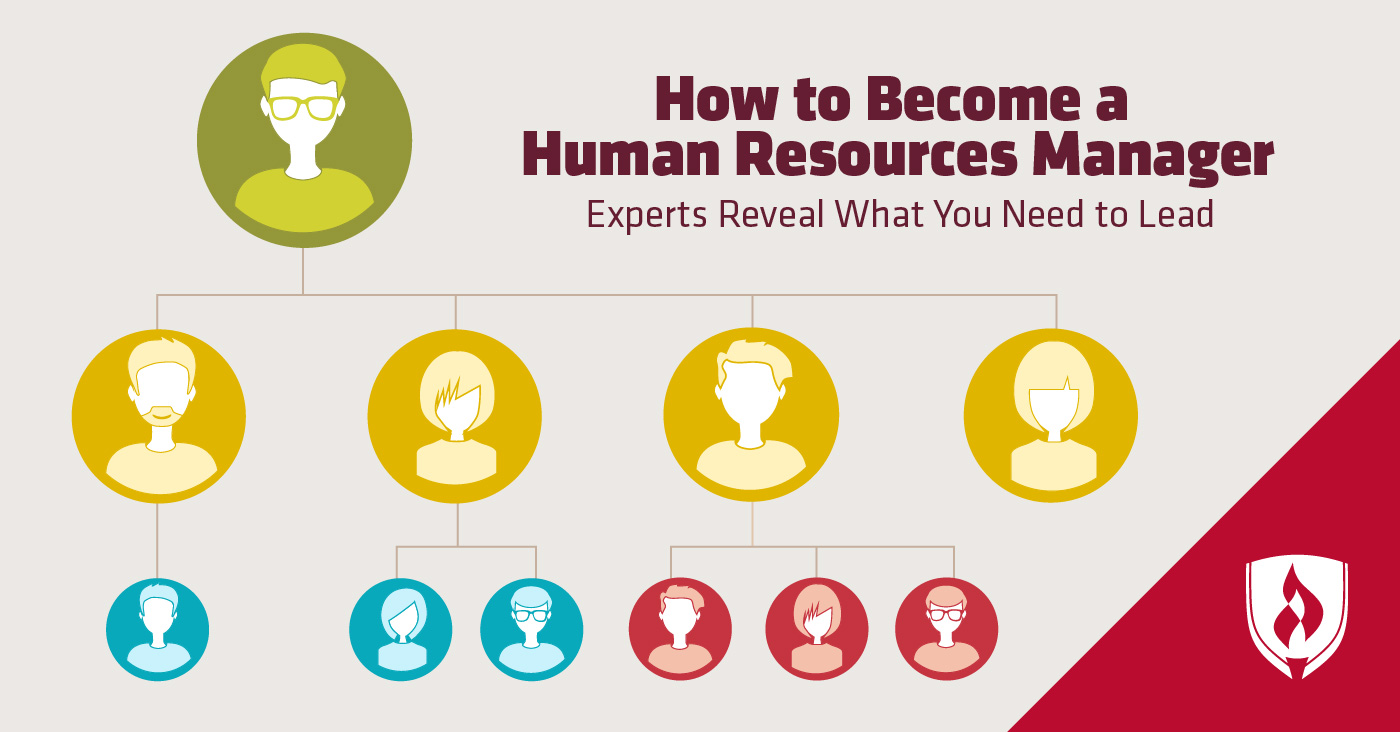How to Become a Human Resources Manager: Experts Reveal What You Need to Lead
By Ashley Abramson on 04/12/2017

You love working with people and strategies, which is why the field of human resources (HR) is such a great fit for you. But perhaps you are looking to leverage the skills and experience you’ve already gained in your HR position to move to a management role.
Human resources is certainly a field with options for upward mobility, but what do you need to do to get there? What are the best steps to take to advance in your HR career?
If you are wondering how to become a human resources manager, you first will want to consider the traits that distinguish an entry-level HR role from a management position. There are many differences between the two, but we spoke to experts who say the most important is the manager’s role as an advisor and consultant. Simply put, HR managers are leaders in their department, not just support staff.
So what can you do to help advance from your current HR position to a role in HR management? We spoke with seasoned experts in the field to gather their best advice on how to become a human resources manager. Consider their insight as you start your pursuit to climb the corporate ladder.
Expert advice on how to become an HR manager
1. Understand the role of the HR manager
While an entry-level HR position is typically specialized in areas like payroll or recruiting, human resources managers’ roles are more diverse and strategic. HR managers are typically relied upon to create and consult on strategies within businesses, particularly when it comes to areas like recruiting and retaining talent, compliance, payroll, policies and procedures.
“The difference between the HR manager and their team is in the varied nature of their role,” says Ellen Sheridan, an HR Business Associate at Kax Media. “They will be called upon to advise and liaise with the business, giving guidance based on firsthand experience and years of experience.”
Before making the decision to pursue a position in management, it’s important to know what you’re getting into. You can do this by talking with those in the role or even finding a mentor to help you understand the details and coach you throughout the process.
2. Understand the business you work for
As you probably know, a large part of the human resources department is working to find and keep talented employees within your company. But to truly draw in and retain top talent, you first need to develop a deep familiarity of the business you work for.
“HR managers need to understand the business they support so they can truly partner with leadership to drive talent decisions that reflect the overall business goals and strategy,” says Jamie Whitacre, Senior Director of Global Human Resources at 3Pillar Global. “It’s one thing to create talent programs, benefits packages or compensation strategies that you feel are right, but it’s another thing to create them to align with the business strategy.”
Human resources attorney Abtin Mehdizadegan agrees with this perspective. In his experience, HR managers work day-to-day to advance the overall mission and vision of their business.
“Successful HR managers consider how each decision in HR advances the goals of the organization as a whole,” Mehdizadegan says. “HR managers operate under this broader paradigm and, as such, will typically have their recommendations given more weight.”
3. Blend your love for people and strategies
Do you enjoy working with people as much as you do administrative tasks? Then HR management might be up your alley. Though human resources certainly involves ensuring compliance to policies and procedures, at the end of the day the role is still very people-centric. So if you want to advance in your field, it’s important to know how to combine your love for people with the need to develop strategies within your company.
“Team members should not just develop a compliance mentality but truly see talent as one of, if not the most pivotal piece of an organization,” Whitacre says. “They should create programs, compensation, benefit packages and talent strategies that drive retention and engagement.
She adds that if you’re looking to grow in the HR field, you need more than just an eye for talent. You need to develop a business lens that allows you to see “the full picture and not just the ‘people’ picture.”
4. Hone your communication skills
Communicating well is an integral part of any successful career, and human resources is no exception. A large part of your job as an HR manager will involve high-level communication, often about confidential issues. You will be responsible for both managing and sharing policies and procedures with the company at large, so it’s very important you can communicate the business’s priorities professionally and efficiently.
“HR managers require excellent communication skills to ensure that the extended team and the wider business are aware of the company’s goals and objectives,” Sheridan says. “Strong communication skills to deal with situations that require sensitive or confidential navigation and implementing company policy in relation to grievance management situations are also very important.”
5. Always be learning
Education and experience are pivotal when it comes to advancing in the human resources field, according to Greg Szymanski of Geonerco Management. It may help to become certified through Society for Human Resources Management or the Human Resources Certification Institute. Additionally, for those who already posses a Bachelor's degree, a Master's degree in Human Resources Management can be an excellent way to differentiate yourself from others seeking an HR management position. Szymanski also suggests finding a mentor in the HR field to help you learn and grow in your HR expertise.
“If someone is interested in moving into a management role, education and experience are key, along with working towards a professional HR designation,” says Jana Tullock, HR Professional at DevelopIntelligence. She recommends stepping up in your current role to take on leadership projects, making sure you’re always focusing on the big picture. “Decisions you make will almost always have a ripple effect,” she says.
Take the next step
This expert advice on how to become a human resources manager should have you even more excited about making the move into management. Are you ready to build on your existing experience and acquire the advanced knowledge and training necessary to take on this role? Learn how a Bachelor's Degree in Human Resources and Organizational Leadership or a Master's degree in Human Resources Management can help qualify you.
Related Articles:




